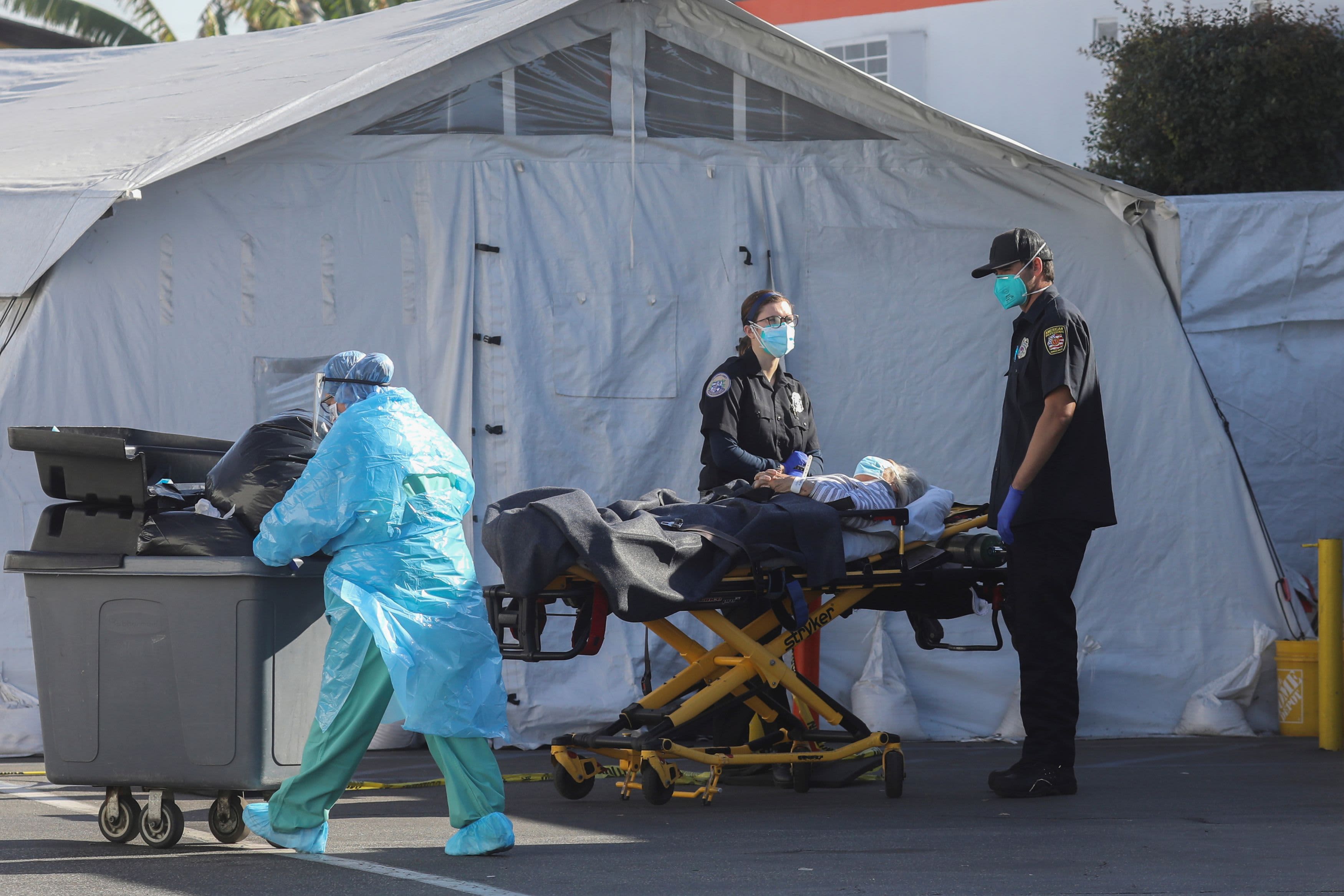For months, the pandemic has put pressure on the supply of different goods and services, from toilet paper to food at the grocery store.
But as the latest surge of COVID-19 infects individuals across the U.S., some suppliers are forced to move equipment around to get it to hospitals in high-demand areas like California.
That's a challenge for some vendors that sell home oxygen.
According to MemorialCare Saddleback Medical Center, home oxygen vendor Apria gave them formal notice that the company's supply is now "tight."
Get top local stories in Southern California delivered to you every morning. Sign up for NBC LA's News Headlines newsletter.
In a statement, Apria told News4 that "the most recent COVID surge has created a spike in demand for home oxygen equipment."
Paul Young, a representative with the Hospital Association of Southern California says he's not surprised.
"I think the issue of oxygen is a global shortage," he said. "It’s not specific to Southern California. We definitely experienced that during the winter surge."
MemorialCare Saddleback said they "currently have adequate suppliers that provide patients with home oxygen," adding that "since the previous surge earlier this year, we have put measures in place to ensure we maintain an adequate supply."
Even so, Los Angeles pulmonologist Dr. Thomas Yadegar worries about potential future shortages, especially come winter.
"The consequences are dire," he said. "And unfortunately, our medical system, as great as it is, does not have unlimited resources."
If there's not enough home oxygen, Yadegar explained, patients can't be sent home when it's time to be discharged. That means they'll end up staying in hospitals longer.
"That creates a backlog in our hospital in terms of patients who may be in the emergency room that require admission and are waiting for beds," he said.
One contributing factor, according to the Hospital Association, is that patients do not return the home oxygen canister when they are done with it so it can be re-used for someone else.
One possible explanation? The patients are holding on to the canisters because they're afraid they'll need it again in the future.
In the meantime, Apria says it's working to get hospitals and patients the home oxygen they need by doing things like "redeploying inventory from markets less impacted by COVID surges to the markets most in need."
That includes California, the company said.




